He tried for popular acclaim and never got there. It may have accelerated his undoing. Phil Ochs. A folkie of a time that now seems far removed from where we are today.He always seemed a bit marginal; not the archetype of the guitar strumming dope smoking hippie out of the Laurel Canyon scene.He was more in the tradition of a Herman Melville or Poe with his use of “untrustworthy narrators”, but Ochs never carried the idiom far enough after hitting the beach. Still, he was authentic. But the times today have really changed. Or have they? …
“The psychosis of the Eisenhower era”, as record producer Van Dyke Parks described it, implanted in Ochs’ the conflict that was to mark the years of protest to come. Deeply patriotic, the teenage Ochs began to understand something of the injustice in his midst and he began to see beyond the surface. In college while studying for a career as a journalist, Ochs befriended folksinger Jim Glover who introduced him to the music of Woody Guthrie and the Weavers; his writings took a notable turn to the left. And after years of study on clarinet, Ochs obtained his first guitar, winning it from Glover in a bet when he wagered that Kennedy would beat Nixon in the ’60 election. Read More: http://www.politicalaffairs.net/movie-review-phil-ochs-there-but-for-fortune/
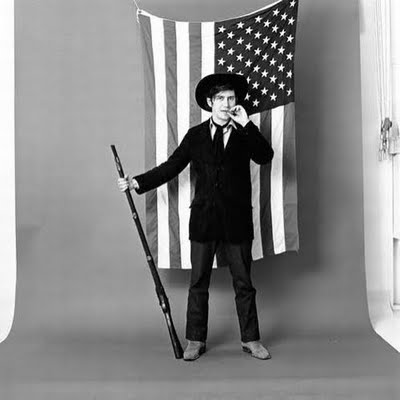
"In one of his post-war essays Adorno made his famous question, is it possible to write poetry after Auschwitz. "Life in the late capitalist era is a constant initiation rite. Everyone must show that he wholly identifies himself with the power which is belaboring him. This occurs in the principle of jazz syncopation, which simultaneously derides stumbling and makes it a rule. The eunuch-like voice of the crooner on the radio, the heiress's smooth suitor, who falls into the swimming pool in his dinner jacket, are models for those who must become whatever the system wants. Everyone can be like this omnipotent society; everyone can be happy, if only he will capitulate fully and sacrifice his claim to happiness."---Read More: http://www.kirjasto.sci.fi/adorno.htm image: http://childofthesixtiesforeverandever.blogspot.com/2009_08_01_archive.html
At issue with all the popular music of the time is whether it was simply commodity or a form of propaganda, as Adorno warned. A cookie cutter approach to protest.Even a re-packaging like Dylan. Establish a formula, a couple chords and stir to taste. Adorno had an advice for what he termed “true” listening and in Och’s music the original intentions can be heard even though the politicization of music was commonplace in the Vietnam era. In Theodor Adorno’s point of how music is listened to, Phil Ochs can be viewed as a link between music written for the masses which actually has a more profound meaning, which is still representing a valid form of expression, unlike much of what passed as “cool” in that era.
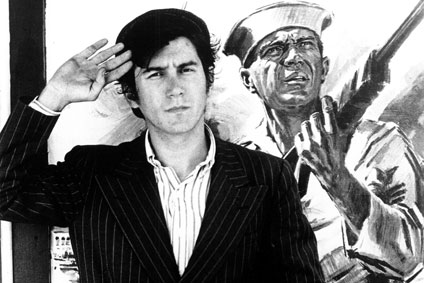
"The American song exists because people have enjoyed it and asked for more. It is the musical expression of consumer sovereignty. And like everything typical of America it gets up the intellectual nose. Coming to America as a refugee from Nazism, the philosopher and critic Theodor Adorno took it upon himself to pour scorn on the music of Hollywood. For Adorno this disgusting sound, riddled with cliche and kitsch, was not art but ideology -- the sweet pill of false consciousness which numbs the senses of the working class. The American song, Adorno argued, be it by Gershwin or Berlin, by Jerome Kern or Cole Porter, is an instrument of capitalist exploitation. It is not the consumer or the producer that is sovereign in this debased musical culture, but the "owners of the means of communication," namely the capitalist class." Read More: http://spectator.org/archives/2006/08/24/the-music-of-america
ADDENDUM:
He always had to play second fiddle to Bob Dylan. He had a vision of the being a world-saving hero. And the folk music movement in the early 60′s had the same messianic sense that it could change the world. That sense could be equally predictable and as reactionary in its own way.
Theodor Adorno: Whether folk-songs were rightly or wrongly called upper-class culture in decay, their elements have only acquired their popular form through a long process of repeated transmission. The spread of popular songs, on the other hand, takes place at lightning speed. The American expression “fad,” used for fashions which appear like epidemics – that is, inflamed by highly-concentrated economic forces – designated this phenomenon long before totalitarian advertising bosses enforced the general lines of culture. When the German Fascists decide one day to launch a word – say, “intolerable” – over the loudspeakers the next day the whole nation is saying “intolerable.” By the same pattern, the nations against whom the weight of the German blitzkrieg was thrown took the word into their own jargon. The general repetition of names for measures to be taken by the authorities makes them, so to speak, familiar, just as the brand name on everybody’s lips increased sales in the era of the free market. The blind and rapidly spreading repetition of words with special designations links advertising with the totalitarian watchword. Read More: http://www.marxists.org/reference/archive/adorno/1944/culture-industry.htm
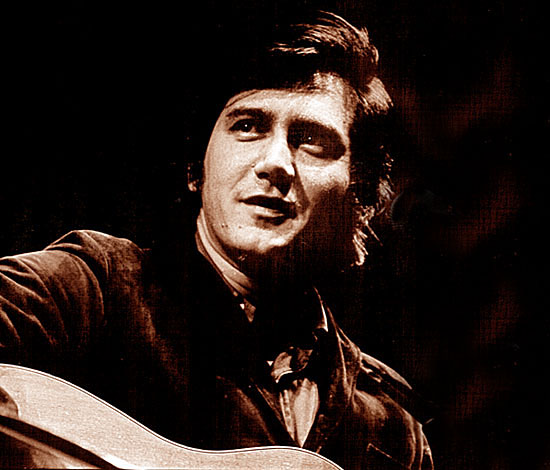
Chris Barsanti:As Christopher Hitchens points out in the film, there was a difference between those who liked Dylan and those who even knew about Ochs -- anybody could be into Dylan, Ochs's songs were for those who cared. Cared about what? The Ochs who comes through in Kenneth Bowser's documentary is the kind of active dreamer that societies need to have around in times of national crisis, to put some poetry to the pain and to stand up as an emblematic fighter for a better humanity. read more:http://www.filmcritic.com/reviews/2011/phil-ochs-there-but-for-fortune/
The theorization of mass culture that he advances in ‘The Work of Art in the Age of Mechanical Reproduction’ (1992 [1936]) attributes a potentially powerful political
element to the consumption of mass culture. For example, Benjamin focuses on mechanical reproduction, the means by which capitalism mass-produces commodities, in order to posit a participatory, potentially democratic relationship to consumption, rather than thenegative and authoritarian understanding maintained by the culture industry thesis. The passivity assigned to the consumption of mass culture is transformed, such that ‘mechanical reproduction of art changes the reactions of the masses towards art’. In other words, mechanical reproduction’s ability to change our relationship to art by making it more accessible (which Benjamin argues also makes it less auratic) pressures a reconceptualization of the function and nature of art rather than appraisal of mass culture from the privileged perspective of high culture. A great deal of subsequent cultural criticism has swung between the contrasting though not at all unrelated positions of the
Frankfurt School. Read More: http://www.uk.sagepub.com/upm-data/9574_019598intro.pdf
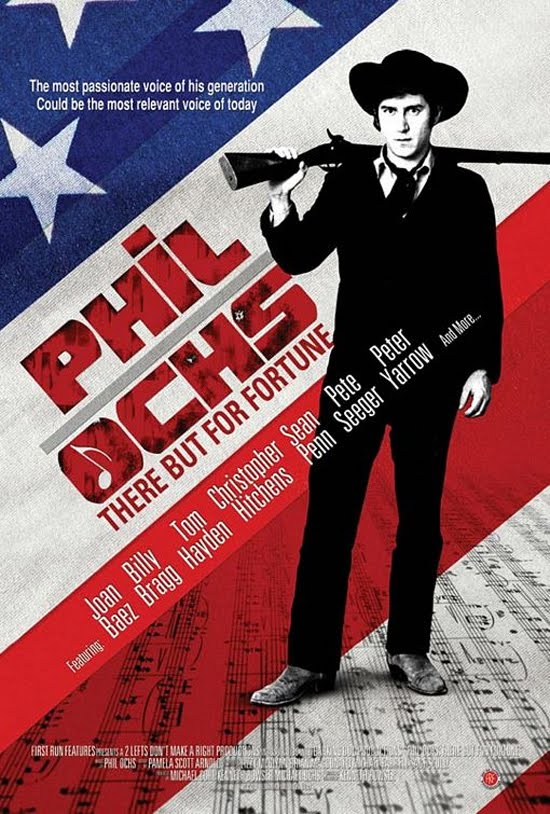
Basic idea of Adorno and Horkheimer:Popular music is standardized to a point that it is “predigested” – the audience has already heard it. Therefore, it requires no intellectual effort to listen to it. It does not challenge the intellect to push itself. The music is simply accepted as is. Furthermore, the “familiarity” of popular music is such that it acts as a friend in an unfriendly world. It reassures the listener that all is well. This is why stores and shopping malls frequently use popular music as a kind of "audio wallpaper." The belief is (and there is a great deal of research to suggest that they are right!), that pop music relaxes shoppers, and makes them more likely to buy something. As such it acts in the service of those who control the economy. The music is able to “substitute for what the listeners are really denied” true freedom of choice, and the ability to effect real change in their environment. Read More: http://www.grebel.uwaterloo.ca/swood/Readings/Adorno%20Popular%20music.htm image: http://pejamovie2.blogspot.com/2011/01/watch-free-online-phil-ochs-there-but.html
” Ochs, who committed suicide in 1976 at thirty-five, never understood that there was a limited audience for brainy mu
l editorials composed in a rigid singsong mode and sung in a droning, nasal voice with a modest range and faltering intonation. If his verses were finely wrought, his singing conveyed an emotional distance from the words.” Read More: http://www.mudcat.org/thread.cfm?threadid=134741
The earnestness of Ochs’s approach was compounded by an almost utopian ideal that was easily discouraged. There was a ambivalence on his part over wishy washy white liberal politics that under a veneer of civilized do-gooding, was actually almost as racist and ethnocentric, as their adversaries. Certainly as elitist.
In the interwar period, Max Horkheimer and Theodor Adorno’s collaboration produced a highly influential approach to mass culture. Their work on the culture industry (a neologism meant to suggest a paradox in that ‘culture’ was thought to be antithetical to ‘industry’) asserts that this institution ‘has molded people as a type unfailingly reproduced in every product’ . Not just products, but themselves as product called consumer, is what the culture industry offers its audience. Miriam Bratu Hansen makes this point abundantly clear as she points out that in Dialectic of Enlightenment, ‘Horkheimer and Adorno ascribe the effectivity of mass-cultural scripts of identity not simply to the viewers’ manipulation as passive consumers, but rather to their very solicitation as experts, as active readers’ . Particular to the culture industry, however, ‘is that the irreconcilable elements of culture, art and distraction, are subordinated to one end and subsumed under one false formula: the totality of the culture industry’ ….Read More:http://www.uk.sagepub.com/upm-data/9574_019598intro.pdf a
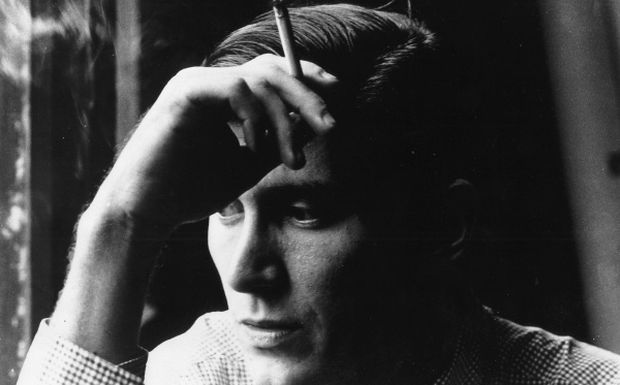
"Ochs's hammy, adenoidal delivery, on the other hand, could never be taken seriously; his hopelessly unreliable narrators, whether draft dodgers or witnesses-cum-co-conspirators to acts of abuse, would later influence satirists like Randy Newman." Read More: http://www.slantmagazine.com/film/review/phil-ochs-there-but-for-fortune/5221
Art critic Clement Greenberg shared Adorno and Horkheimer’s disdain for mass culture. His ‘Avant-Garde and Kitsch’, which originally appeared in the Partisan Review (1939) criticizes mechanical reproduction and the mass production of culture. ‘Kitsch’, his term of choice for mass culture, is used in a derogatory sense. It connotes a tawdry and tasteless
absence of aesthetic purpose; cultural production dismissed as inferior and designed to appeal only to the popular tastes believed to epitomize mass markets. As kitsch, mass culture marks a crisis in the separation between high and low culture, which leads Greenberg to describe it as ‘a spreading epidemic’ that replaces the dominant role of the avant-garde as gatekeepers of taste and culture.Read More: http://www.uk.sagepub.com/upm-data/9574_019598intro.pdf
Ultimately, the story of Ochs is complex and tragic. His bipolar illness, aggravated by booze, probably contributed to his paranoia and a vulnerability to taking his own life. What he realized, in part, was that violent police response to radical demonstrators at the DNC was an indication on the level of freedom America would tolerate, and it was not to cross a line that advocated a dismantlement of property law and monopoly of wealth.
By his third studio album, Ochs’ transition was not into the realm of folk-rock–as his peers had moved into–but to an expansive, concept-driven format that made full use of orchestration and a variety of genre. String quartets, honky-tonk piano, woodwinds and electronic music provided a sweeping soundscape for Phil’s resounding tenor. Seemingly always aware of, yet in battle with, the tragic destiny of mental illness that would later claim him, Ochs fueled his passion with alcohol and work. But the brilliance of his music was never enough to satisfy the burning restlessness within the man or his conflicted self-image, equal parts self-important and shattered. Read More: http://www.politicalaffairs.net/movie-review-phil-ochs-there-but-for-fortune/

"Barthes’ work infused analyses of culture with new dimensions and analytical possibilities, for it maintained that the most powerful work of mass culture was carried out not at the level of primary signification (or what it denotes), but at the level of its secondary signification (or connotation). The intelligibility of secondary signification, in turn, rests on the culture at large in the same way that a word means something in relation to the language of which it is a part." Read More: http://www.uk.sagepub.com/upm-data/9574_019598intro.pdf
While his folk singing peers embraced folk-rock in the mid-’60s, Ochs took an artier musical direction and moved to the West Coast, where he recorded his disappointingly received 1967 album, “Pleasures of the Harbor,” which featured ornate, semiclassical orchestrations. The album’s producer, Larry Marks, recalls that Ochs was certain it would go to No. 1 and gain him recognition as America’s greatest singer and songwriter. It peaked at No. 168 on Billboard’s album chart.
Read More:http://www.icce.rug.nl/~soundscapes/DATABASES/SWA/Culture_industry_1.shtml








 COMMENTS
COMMENTS



